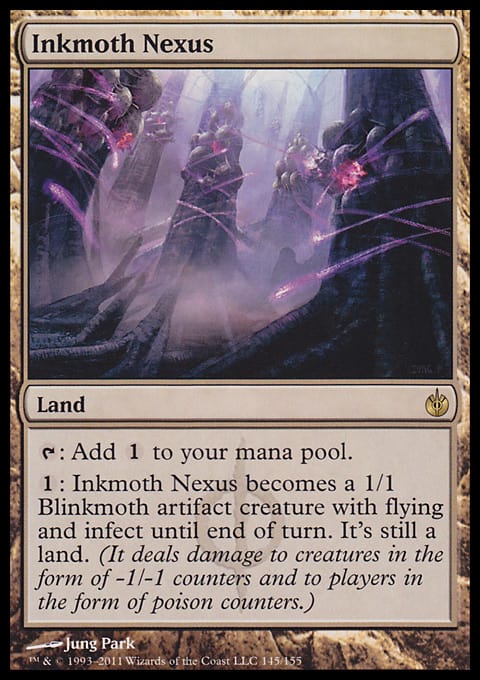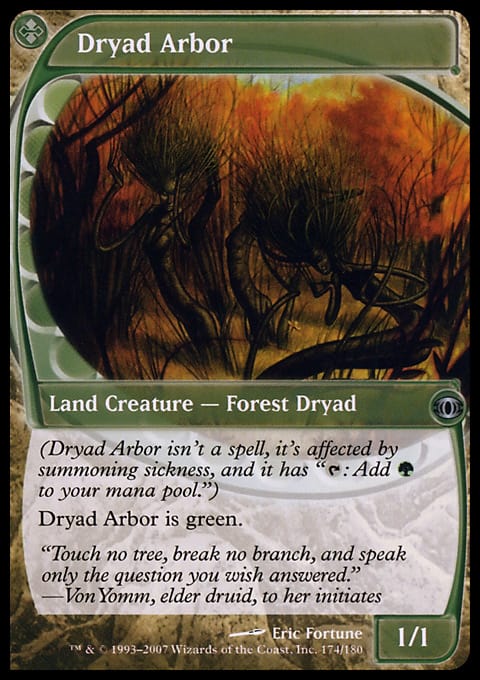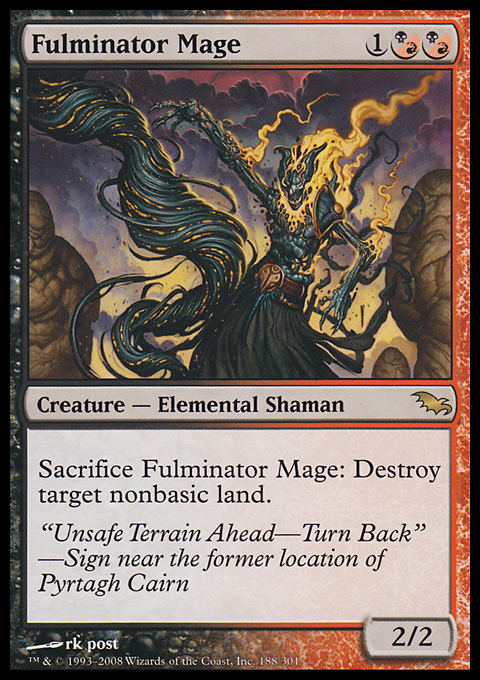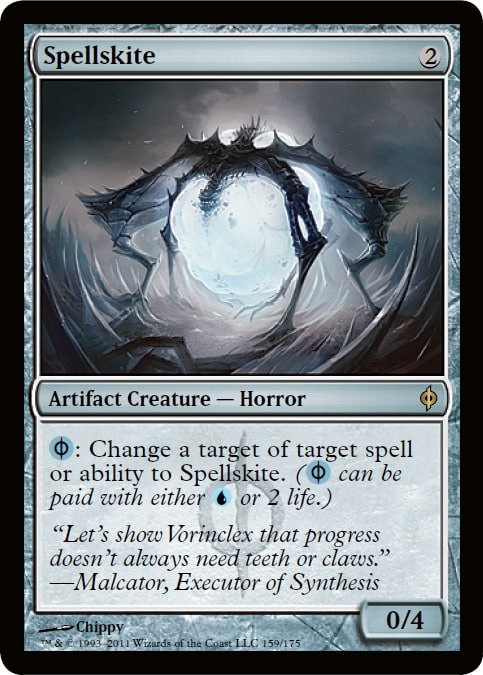For those of you who read my last article, you may have noticed it was a bit strange. I stated that I wanted to start a discussion on ethics in Magic, but I notably abstained from discussing ethics in the article. The reason for this was that my sole interest was listening at this point in time.
I originally intended for the article to be about the components of a good bluff. But while I was writing the piece, my social media feeds were overwhelmed by a profusion of players offering their opinions on what they believe to be ethical conduct in a game of Magic. While reading through these comments, I was surprised to see so many players express opinions that differed from my own to the extent that they did despite sharing the common goal of promoting fair play. This led me to the realization that I wasn’t qualified to render a judgment on what exactly is acceptable in a match of Magic, for I had never sought out, nor had I given fair assessment to, the opinions of players whose priorities differed significantly from my own. I was worried that I potentially was not only just engaging in unethical play but potentially spreading unethical practices because of my position. It actually felt irresponsible to remain ignorant on the subject for any longer. So I decided to use my article as a medium to garner a diverse group of opinions on the subject, in an attempt to expose myself and my readers to different perspectives.
I took a few examples from the article that I was writing that incorporated elements of gamesmanship, stated that I believed they were ethical, and asked if anyone felt otherwise. I was intentionally brief in declaring them ethical because I didn’t want to influence anyone’s opinion, and I didn’t want it to come off like I was defending myself because I wanted to hear people disagree with me. But after having taken all the responses I received into consideration, I’m going to reassess each scenario through a more informed lens and provide a detailed analysis of the situation.
Before I continue though, the importance of providing context when discussing ethics was brought to my attention, and I couldn’t agree more. The long standing philosophical debate between moral universalism and moral relativism aside, it’s fair to assume that my view of ethics could easily vary greatly from yours. So in order to prevent any confusion, instead of deeming the plays as ethical or unethical I’m simply going to share my thoughts on the situations as a means of building upon the dialogue I initiated in my previous article.
Scenario #1 (The Bluff)
I untapped then drew a Breeding Pool. I began carrying out my turn exactly as I had planned. I cast Might of Old Krosa on my Dryad Arbor, and then I attacked. After I attacked, I tapped my Breeding Pool and picked up my graveyard. My opponent then informed me that they were still thinking, so I stopped. During this I never said anything, and I didn’t move any cards outside my graveyard. My opponent then chump blocked my Dryad Arbor with their Olivia Voldaren.
Maintaining an accurate game state is the responsibility of both players, and the concern here is that this play potentially infringes on that. In attempting to make my bluff as convincing as possible, I’m trying to make my opponent believe that I think we’re in a different phase of the game. What I’m actually doing is attacking and holding priority after attacks and feigning casting a spell here, but I want my opponent to assume that I’m attempting to do this after blocks have been declared. This play is only made possible due to shortcuts being a necessity in paper Magic, so it may seem unscrupulous to take advantage of this but there’s more to the situation. When you think about it, it’s all just the result of me signaling I have a Become Immense. My opponent believes that I either think we’re past blockers or that I’m attempting to shortcut past blockers because that’s when it would make sense to cast Become Immense. If I did everything the exact same but instead of picking up my graveyard I wrote something down on my life pad, my opponent would likely deduce that I have a Dismember. If I signal a Dismember, my opponent would assume we’re still before blocks because that’s when it makes sense to cast a Dismember. This is why this play is fine in my opinion. I gave my opponent the impression I had a Become Immense and allowed them to draw their own conclusions from there. At its core this is the same as any other bluff, so I consider this a reasonable play.
Scenario #2 (The Reveal)
I started to shuffle my cards a bit as I frequently do, but I intentionally dropped the Spell Pierce while doing so. I quickly scooped it back up and resumed thinking. I went to combat and attacked with the Glistener Elf, and my opponent blocked with their Fulminator Mage which prompted a Pendelhaven activation from me. They responded by using the Fulminator Mage on my Breeding Pool, and I followed up by playing the Inkmoth Nexus.
This play is probably the most difficult to assess of three because it’s the most unique. The use of gamesmanship here could come into question, but I don’t really see much of a difference between this and fiddling around with 2-mana with a spell on the stack to make your opponent think you have a Counterspell. I’m doing it through much more crass and unconventional means, but the intent is the same. It’s an attempt to induce a mistake from your opponent by feeding them information. My actions likely influenced my opponent to make the play I wanted them to, but I didn’t impede them from them from making any other plays. They chose to use the information and acted under their own volition, so I would claim that this is an acceptable play to make.
Scenario #3 (The Trick)
I used Vines of Vastwood on the Spellskite, and then proceeded by casting Might of Old Krosa on my Blighted Agent. My opponent thought for a moment and then let the Might resolve. I didn’t say anything during this exchange. After casting the Might, I attacked with Blighted Agent and used my Mutagenic Growth. My opponent conceded.
At first glance, this may appear to be the most cut and dry. Regardless of a player’s reasons for participating in a tournament, there is some expectation that they have an understanding of the game and tournament procedure. With that being said, I don’t think anything like this should be done liberally. There are resources in place to prevent misunderstandings from occurring, but if you have reason to believe your opponent isn’t aware that these resources are available to them (e.g. an inexperienced player) plays in the same vein as this absolutely should not be made. Similar plays also shouldn’t be made in an attempt to take advantage of an opponent’s inhibition. Tournament Magic often creates high pressure situations, and not everyone responds the best under these conditions. If you’re making a play similar to this one because you feel they’re less likely to seek information because they’re nervous or shy, I think this is dangerous territory as it can easily be severely detrimental to your opponent’s tournament experience.
My Perspective
One of the most common responses I received last week was comparing the above plays to bluffing in poker, but this isn’t an accurate comparison. Magic is often compared to poker, but in reality very few of the skills are actually transferable. This may seem strange coming from someone who’s typed a few thousand words on some bluffs in the last two weeks, but they’re just different games. However, they are similar in the sense that they’re really just one long continuous session. Both games are replete with variance, but winning a significant portion of the time is made possible by grinding out micro-advantages wherever possible. The plays from these scenarios are examples of this.
A common way to gain an edge in a match is to induce a mistake from your opponent. The plays from these scenarios are incredibly blunt versions of this, but at their core that’s all they are. While the legitimacy of the game will always take precedent, I love winning and hate losing. I’ve worked hard and allocated such a massive amount of my time to the game to ensure I’m able to recognize situations where I have the ability to gain these micro-advantages. From my perspective, these are situations where I’m reaping the rewards of my labor, but I still recognize my logic may be flawed. I have no delusions about being an expert on what’s acceptable conduct in a match. One week and one article is far from sufficient in allowing me to claim I have anything more than a tentative grasp on the subject, or that I’m capable of rendering an impartial verdict, but it’s something I’m committed to working on. And I would advise you all to approach the game with an open mind in the future as well, because a better understanding of why we all play this game and what we want out of it can only serve to benefit the experiences we have and the relationships we form while playing it. So whether or not you agree with me, at the very least I was hopefully able to provide some insight on a perspective that may have been foreign to you.
























